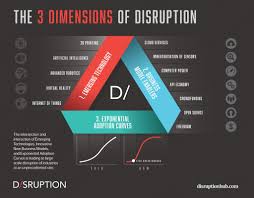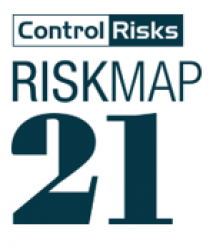His first shot at showing unguided over ambition in taking over the nation’s emerging communications industry was fired while even as the head of NITDA earlier this year when he, as the Director General of the agency, trespassed into telecoms regulatory arena without recourse to the Nigerian Communications Commission (NCC) by issuing a circular which the telecoms operators contested in a petition to the core regulatory, the NCC.
It was not clear if why NCC did not immediately respond to the petition of Association of Licensed Telecoms Operators of Nigeria (ALTON) then, was its intelligence that the then DG of NITDA, Dr Isah Pantami, is about to be named the minister of Communications which will eventually supervise it.
However, dusts raised by Dr Pantami’s first shot died a natural death as nothing was heard from NCC regarding the petition of the telecoms operators on the issue.
Few weeks after his swearing in as the substantive Minister, he unilaterally convinced the presidency into extending the supervisory rolls of the ministry from Communications to Digital Economy, which analysts say may lead to a clash of responsibilities between the ministry and other ministries, departments and agencies (MDAs).
Earlier last month, he crushed a veiled plan between banks’ and telecoms to rip off Nigerians under the pretext of using USSD driven fund transfer on their networks.
Only recently, the same Minister directed NCC to within five days, crash the price of data services.
However, in a smarter approach, NCC requested for more time which was granted even though the new deadline was kept secret.
On his usual and similar unilateral commando-styled directive to NCC, Dr Pantami failed to look back at the statutory powers of NCC regarding determining data price or crashing same.
Otherwise, part of the directive, which asked the regulator/operators to crash data price without recourse to legal procedure, as enshrined in the telecoms laws have been described as antithetical to proper regulation of the industry to ensure sustained growth, a fact industry experts said the Minister failed to “acknowledge to demonstrate his understanding of the sector he is supervising.”
The minister in his ambition, failed to find out that NCC has no such unilateral power under Section 108-110 of the Nigerian Communications Act 2003, which established it, to prescribe retail price.
Besides, the Act showed that the NCC does not have the powers to unilaterally determine data price contrary to the Minister’s directive, as the Commission is guided by the Act and in line with the International Telecommunication Union (ITU) recommendations.
Accordingly, and for the information of the Minister, what the law allows the Commission to do is to ensure that tariffs reflect the costs of providing services.
It is on this basis that the core telecoms regulator, the NCC, is mandated to carry out cost-based studies from time to time and as may be deemed fit to fix price floors and /or ceilings as this also helps the regulator to ensure that no operator can under-price to kill its competitors.
Business Hilights gathered that within the statutory regulatory rolls of the Commission, it is currently carrying out seamless cost-based study even before the directive, to determine if the current data price floor is in line with realities or not.
Industry observers say whereas data price determination is calibrated in line with realities of the markets forces which must cut across the cost elements of the operators, digital inclusion drive, access level and affordability, there is need for caution.
Observers say without the intelligence and maturity with which the NCC had been following the new minister, more serious blows would have landed on the industry which may frustrate the growing contributions of the sector to the GDP.
Experts say had it been that NCC followed the directive hook line and sinker, fireworks of litigations coming from data services providers’ would have been a federal High Court matter and that may not encourage investors after all.
Besides, the court action(s) would have reversed volumes of foreign investors already in the sector and put intending ones in serious confusion after all.
This position was further advanced by the leadership of ALTON when the Chairman of the group, Gbenga Adebayo, averred that the Minister’s directive appeared dictatorial and capable of eroding the gains of the telecom sector by scaring away investors, who have invested in the industry.
In his words, “Reduction is not possible. NCC should be allowed some level of independence to do its work of regulating the telecom industry.”
“I don’t know how the government is going to achieve data reduction any time soon. Have they put into consideration the high cost of operating our businesses and the very harsh operating environment in Nigeria,” he asked.
In a similar line of reasoning, the President of Association of Telecoms Companies of Nigeria (ATCON), Olusola Teniola, agreed that the new minister, even though somehow into telecoms, may not know everything, he suggested that Dr Isah Pantami, the Minister of Communications and Digital Economy is in need of more time to learn and understand the industry before giving operational directives.
To him, “It will take some time for the Minister to be aware that, in fact, Nigeria has one of the cheapest rates of data in Africa.”
Still on the minister’s unilateral directives without recourse to neither relevant agencies nor industry stakeholders, ALTON on Thursday issued another SOS, saying “Our attention has been drawn to yet another directive by the Honourable Minister of Communications and Digital Economy on Deactivation of Voice Mail Protocol by Service Providers’ Network.”
According to the industry group, “In as much that we want to believe that the Minister was misquoted, however, our position on Voicemail Directive by the Minister are as follows: That Voicemail (VM) is a value-added service. Only those who opt-in should have it; The current practice on some networks is that once you call and the recipient doesn’t pick, you get a voice prompt saying that the subscriber is not available and asking you to record a voice message *after the tone* .
ALTON added further that “For the avoidance of doubt, you (as a consumer) are not billed anything, but if you delay, you may be charged for a few seconds, or for the time it takes you to record the message.
“The recipient of the voice mail does not get charged for listening. It is free.
“VM is a value added service and it should only be provisioned for those who expressly request for it. It may be recalled that MNOs reintroduced the VM facility to discourage people who “flash” continuously. Flashing wastes network resources and also degrades QoS reporting. This should not however justify the practice the way it is being done by some networks
“However, this is not a major “policy issue” within the meaning of S. 23&24 of the NCA which empower the Minister to formulate “general policy for the communications sector…” (after consultations organised by the NCC!). It is a mere operational/consumer protection issue which the Ministry can simply call NCC’s attention to.
The position paper signed by ALTOn chairman, Engr. Gbenga Adebayo and Head, Operations, Gbolahan Awonuga, concluded by arguing that “It is a purely consumer related issues that minister refers to as a major policy issue and it also amounts to unnecessary interference by the Minister contrary to Section 25 subsections 1 & 2 of the Nigerian Communications Act 2003.”









